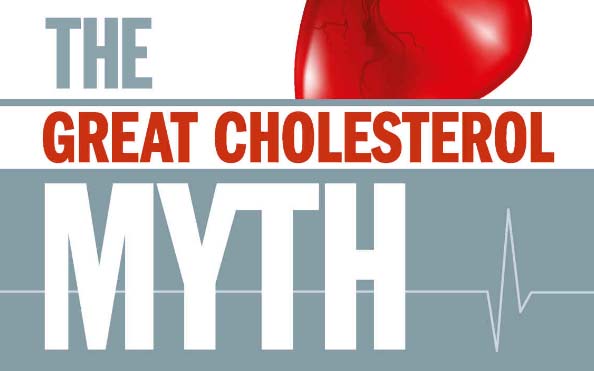Deprescribing 2: Statins

By Dr. Richard Amerling, MD
Chief Academic Officer of The Wellness Company
In a previous article on deprescribing I mentioned some prime candidates. Statins, prescribed to millions to lower cholesterol, can be safely discontinued and would result in a marked improvement in the health of the nation!
The “statin scam” is based on the “cholesterol myth,” the idea that high cholesterol causes coronary artery disease. Scientific support for this idea is amazingly thin—mostly statistical associations over populations, and even these are questionable. Very solid epidemiologic evidence suggests improved longevity with higher LDL cholesterol.
Let’s backtrack a bit: A scientific hypothesis can never truly be “proven;” it can only be disproven. The classic example is the hypothesis that all swans are white. This can never be affirmatively proven, but the discovery of a single black swan would effectively disprove it. Thus the millions with high cholesterol and no coronary artery disease (myself included) disproves the “cholesterol causes heart disease” hypothesis.
A basic understanding of the biochemistry of cholesterol is all I needed to conclude that blocking this essential pathway is a colossal mistake.
Statins (Lipitor, Crestor, Zocor, others) are manufactured derivatives of mycotoxins, which are cellular poisons. The drugs inhibit HMG CoA reductase, a key enzyme at the very beginning of the cholesterol biosynthetic pathway, known as the mevalonate pathway. They therefore also inhibit the synthesis of several vital molecules downstream, including dolichols, coenzyme Q10, and nuclear facto kappa beta. CoQ10 is vital for mitochondrial energy production and its depletion causes muscular dysfunction, include cardiac muscle!
And cholesterol itself is perhaps one of the most important substances our body makes. It’s so important that, while most of blood cholesterol comes from the liver, virtually every cell in the body has the ability to manufacture its own! Why would the body manufacture a substance that’s going to cause heart attacks?
Cholesterol has key roles in the brain facilitating transmission between synapses. It’s so crucial the brain has the ability to synthesize cholesterol. Certain statins, such as Lipitor and Crestor, cross the blood-brain barrier and inhibit this. Brain fog and dementia are major side effects of statin therapy.
Cholesterol is the backbone from which all steroid hormones are synthesized. These include cortisol, aldosterone, all sex hormones, and the precursor of vitamin D. Blocking cholesterol synthesis makes absolutely no sense biochemically and is harmful clinically.
Studies of cholesterol lowering in patients have almost never demonstrated reductions in all-cause mortality, which is of course the key endpoint. Many do show reductions in composite cardiac events. These are reported using the quasi-fraudulent “relative risk reduction” manipulation where the absolute risk reduction is divided by the overall reduction to get a ratio that sounds impressive. For example, if the control arm of a study has a 3% incidence of heart events, while the treatment arm has a 2% incidence, that is a 1% absolute risk reduction, which is clinically meaningless. But divide 1% by 3% and voila, you have a 33% relative risk reduction, which is basically how Lipitor was marketed to millions! This is why I call it the “statin scam.” The 1% absolute risk reduction is based on statins given for “primary prevention,” or those with no history of heart disease. Reduction in cardiac events with statins is somewhat greater when used as “secondary prevention,” that is, in patients who already have known coronary disease, but not by much.
While magically amplifying truly minuscule benefits using mathematical chicanery, side effects are always underreported and downplayed. Muscle aches (technically myositis) are extremely common side effects in clinical practice, yet are minimized in the various sponsored studies.
As I mentioned in the earlier article, all treatments in medicine should be based on the “risk:benefit ratio.” Statins provide minimal, if any benefit, but with considerable risks of very serious side effects and therefore fail this basic analysis. Treatment of LDL cholesterol is mostly driven by Pharma-sponsored guidelines written largely by doctors paid in various ways by industry. Targets for LDL cholesterol have followed a downward trend, reflecting this pro-industry bias. It’s one of the worst examples of “treating numbers” rather than patients.
This column is for educational purposes and shouldn’t be taken as medical advice. But I would strongly urge readers to inform themselves about statins, and confront your prescribing physician with these questions:
- What is my baseline risk of heart disease? Do I have coronary artery disease now? How do you know? Shouldn’t I get a coronary calcium score (CT scan)?
- How much will this drug reduce that risk, in absolute (not relative) terms?
- Are there dietary or lifestyle changes that could reduce my risk?
- What are the major side effects of the drug, and what are my chances of developing them?
- Do I need this for life? Why?
- What if my coronary calcium score is very low?
- - - - - - - - - - - - - - - - - - - - - - - - - - - - - - - - - -
About the Author:
Dr. Richard Amerling is a consultant Nephrologist/Internist with over 30 years experience. He specializes in diseases of the kidney, metabolic syndrome, diabetes mellitus, and hypertension. He is on the Chief Medical Board of The Wellness Company founded in 2022.
His areas of specialty include:
- Dialysis, including peritoneal and home dialysis
- Chronic kidney disease
- Metabolic syndrome
- Transplantation
- Metabolic bone disease
- Guideline critiques
- Health care economics and politics














